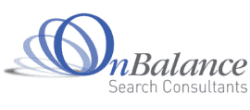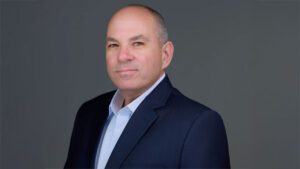I spoke with Allison Plesur, an employment lawyer and certified executive and professional coach working with the legal community. She sees attorneys’ shifting priorities as an opportunity for both firms and employers to create long term success.
Q 1: How do these priorities come up in your practice?
As a coach, I often speak with clients who are considering, or re-considering, their career path. More specifically, they’re considering what they need to build fulfilling careers. They’re deciding whether they need to make changes and if those changes might involve looking for a new position.
Generally, they’re pretty clear on the financial aspects of it – compensation, benefits … perhaps location.
The shift I’m seeing is that attorneys are paying more attention to categories that used to be considered second or third level criteria. You can call them different things – attorney wellbeing, professional development, balance, growth opportunities. It boils down to attorneys looking for more than a transaction (their work for compensation). They’re looking for relationships. They want employers who invest in them.
Q 2: What do you mean by “invest” in them?
I mean that as attorneys devote time, energy, and skill to their organization, they want to know that they’re seen as more than productivity metrics. They want their employers to support career growth, be open to opportunities where they can align their work with their values, and acknowledge that the quality of their non-work lives is valuable. They don’t want to be considered interchangeable production units.
Q 3: Why do you think we’re seeing a shift now?
I think that the shifts we’re discussing are tied to the idea of career sustainability – building a successful and productive career that aligns with one’s values or priorities. Many factors could be coming into play explaining why we’re seeing that focus now.
Some may be generational. When I graduated law school (in the Dark Ages) most of us wanted to find jobs where we could build a long-term career. That specific long-term view may not be as prevalent today. I was told by one recent grad that the focus is more on finding a job that fits them now, with plans to move to another job in 3 years when they are ready for the next stage of their career, possibly with subsequent moves every few years. When they make those moves, they’re considering more than pay and benefits. This is in line with studies that have found that Gen-Z and millennial workers rank work-life balance, learning opportunities, and flexibility as priorities when considering a job.
Covid also changed how we view working environments. The pandemic caused many people, or gave many people an opportunity, to examine their long- and short-term goals. They also examined what they’re willing to give up to attain those goals. The pandemic’s impact on mental health also initiated closer examination of measures related to work life that support or harm mental wellness.
Additionally, during the shutdown many of us got a taste of having more control over what our days looked like as we worked from home. After shutdown requirements lifted, workplace tech allowed us to work pretty seamlessly from home, at least for a portion of the week. That ability, coupled with the benefits of not spending time or money on commuting left a lasting impression.
There’s also generally a greater awareness of damage resulting from ignoring attorney wellbeing. Mental health, physical health, and substance abuse issues in the legal community are too prevalent to be ignored. Attorney wellbeing is specifically addressed in law schools and in many firms. It’s no surprise that individuals are paying attention to and prioritizing wellness needs.
Q 4: How can firms address this shift?
Many already are. Professional development (including coaching, mentoring, training, and sponsorship) and attorney wellness programs are more common. Some firms have continued flexibility for hybrid or remote work options.
For those firms that aren’t addressing the shift yet, acknowledging these needs presents a powerful opportunity, especially as lateral shifts were on the rise again in 2024. Firms can leverage their awareness to demonstrate commitment to their attorneys and to support a successful work culture.
I think the first way to address additional priorities is to understand that they aren’t a negative shift. I’ve heard senior staff talk about “millennial issues” as though attorneys who set boundaries around work time are lazy or disloyal. Pre-judging different approaches as negative blinds you to common goals. Perhaps the question shouldn’t be whether an employee is balking at a uniform work schedule, but whether, or how, flexibility can empower a team to work together productively and contribute to a sustainable culture.
Of course, these new priorities can offer benefits in a variety of ways. An attorney who wants training or experience in a new area may be able to bring a new depth of understanding to their existing work. A co-worker who feels able to acknowledge their family life while at the office might be able to build stronger relationships with co-workers, improving team relations.
Q 5: What about attorneys? What can they do?
Individuals don’t have to wait for firms or for the legal industry to act. They can take steps to build fulfilling and sustainable careers, whether in their current job or by looking for a new position. One tool that my clients find useful is examining and defining their values – not general values (family, security…), but digging down to examine specific values and why they’re important to them. After all, you need to figure out what’s important to you before you figure out what you want.
I find value examination and work-life alignment can be much more powerful than seeking “work-life balance.” When you’re trying to achieve balance, you’re placing “work” and “life” in opposition – you’re always taking from one to augment the other. For many of us, when we try that type of balancing act, we don’t feel balanced. We feel like we’re pulled in two directions at once and dropping the ball in too many places.
I focus on work-life alignment. Discovering and defining specific values and then looking for opportunities to integrate them throughout your whole life – including both work and non-work aspects.
Q 6: Can you give us an example?
Sure. One coaching client initially came to me to work on communications issues she was having at work. She previously had a prestigious position and left when she had a child. She returned to the workforce as a single mother, but in a slightly different area and in a position at a different level that didn’t command the same respect as her previous job. She specifically chose that position because it gave her flexibility to be there for her child.
It turns out that the issues that kept coming up in our coaching sessions didn’t focus on communication – they were centered on her new role being a “step down.” When we worked on exercises defining her values, the values most important to her centered on taking care of her child, growth and learning, and community. In one session, she had a shift where she stopped looking at this job as “settling.” Instead, she realized it was an enabling job. It enabled her to have time with her child and to be more active in her community.
That new awareness let her see that this job could serve another group of her values – learning and growth. The employer encouraged time off for educational and development opportunities and provided an allowance to cover attending them. That awareness changed the way she looked at her role, her employment, her co-workers and her ability to be active in her life. It gave her an idea of a path towards a sustainable career.
About Allison Plesur
Allison practiced employment law, representing both employers and employees, for 30 years. During that time, she also co-founded online human resource training and workplace communication companies. Now, Allison’s blends her experience in the legal community, her understanding of workplace dynamics, and NYU coaching training to support the legal community as a certified Executive and Professional Coach.
Contact Allison at Allison@AllisonPlesurCoaching.com, connect on LinkedIn at www.linkedin.com/in/allison-plesur, or visit her website, https://AllisonPlesurCoaching.com.
About On Balance Search Consultants
On Balance offers great insight and industry intelligence. Shari Davidson, president of On Balance Search Consultants, advises law firms on how to take a firm to the next level and helps rising talent make the transition to the right law firm. Contact us today. Call 516.731.3400.
Please note that the content of this blog does not constitute legal advice and is only intended for the educational purpose of the reader. Please consult your legal counsel for specifics regarding your specific circumstances and the laws in your states pertaining to social media and any legal restrictions regarding the law.





